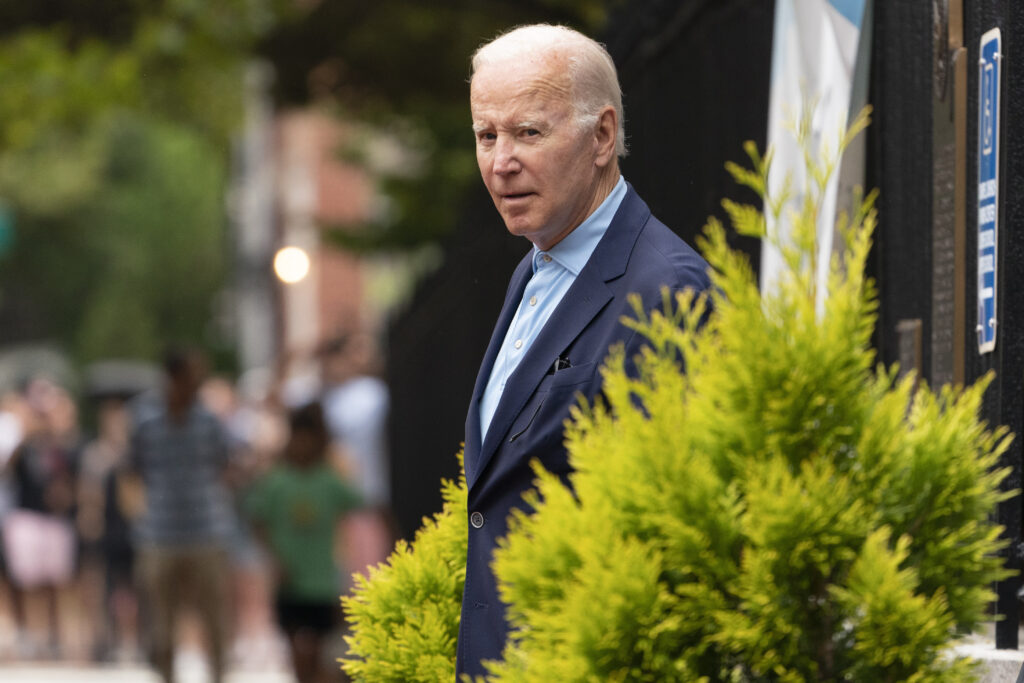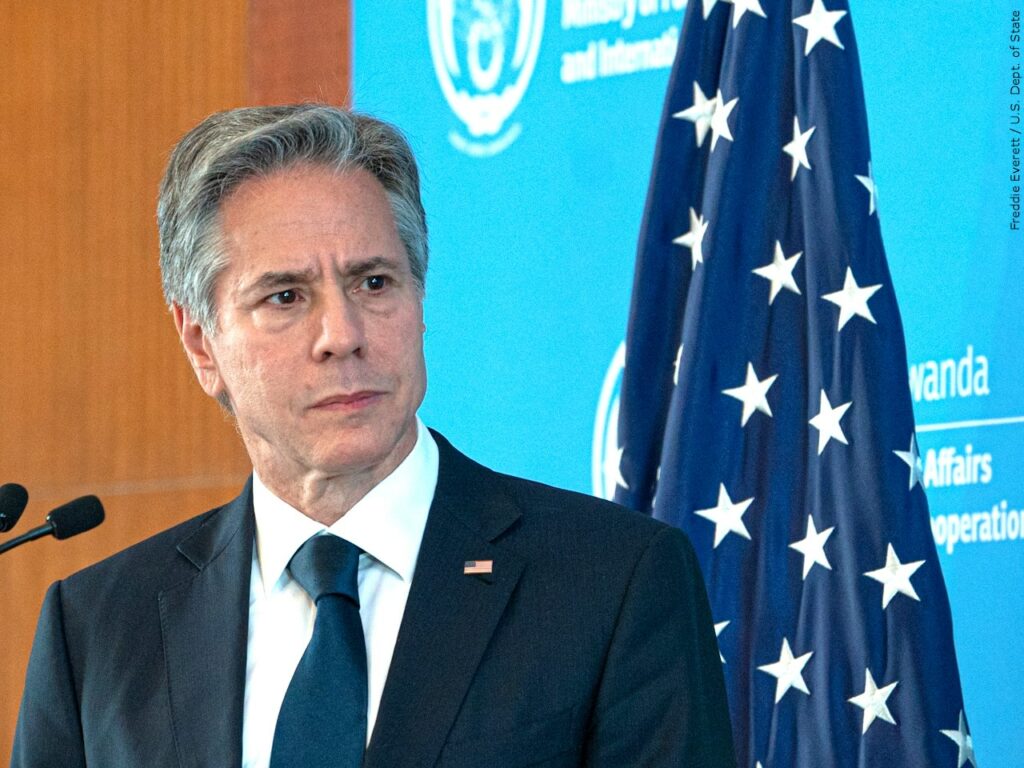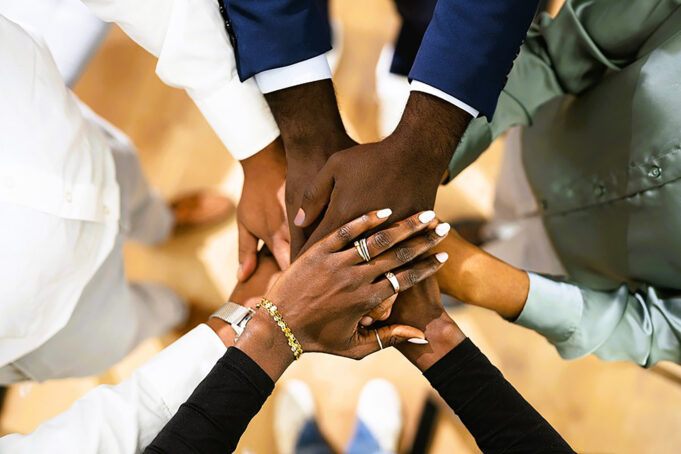The upcoming United States-Africa Leaders Summit hosted by President Joe Biden in Washington, D.C., raises questions and concerns about U.S. intentions and plans on the continent. According to organizers, the three-day summit scheduled for December 13-15 is expected to convene African presidents, civil society, diaspora communities across the United States, and the private sector in the pursuit of a shared vision for the future of U.S.-Africa relations.
America courting the leaders comes amid a great power competition of foreign nations vying for influence and control of Africa’s vast resources. The summit also comes while Africa suffers crises of food insecurity, climate effects, conflicts, exploitation, and the domino effects of Western world decline and turmoil.

“It’s been a tenuous relationship,” said Dr. Harry Singleton, professor of African American Studies and Religious Studies at the University of South Carolina.
“It’s been a relationship of ‘superior’ European men and so-called inferior African people, particularly West African people, which justified the economic pillage of the most minerally rich continent in the world,” he added.
Dr. Singleton expects not only commitments of goodwill at the summit, but dollars, which he said goes a long way in stabilizing relationships of inequality. He doesn’t want African leaders placed in a situation where they are expected to see this as “benevolent” as we saw it as slaves in America. “In a post-slavery context that whatever the good White folk give us, we should just be grateful for it,” he said.
The issue should be, what needs to happen to stabilize African people in the diaspora and stabilize African nations where meaningful capital flow exists to empower their ability to build infrastructure and develop solutions relative to pressing problems like food insecurity and other challenges.
“I want to see European leaders making a commitment to work toward the point where African leaders—because of the minerally rich areas of Africa—won’t be pillaged anymore by European warlords,” said Dr. Singleton.
But considering America’s sordid past with Africa, a government-arranged gathering begs scrutiny, say Africa observers and analysts. They said the summit is part of a new scramble for Africa to be understood in the context of 500 years of European violation and domination, in which the U.S. is an offspring and culprit.

“I am looking at the state of global affairs … what’s going on in the world,” said Nii Akuetteh, a Ghanaian-born policy analyst and activist with the Advocacy Network for Africa. “And I’m also very conscious of our history,” he said.
The activist described that history as a catastrophe unleashed in Africa after the advent of Europeans on the continent.
“So, when I look at the last 500 years, this is the context in which I see all the issues that my continent is dealing with,” explained Mr. Akuetteh. “And I think my people need to understand why we are in the hole we are in,” he told The Final Call.
A global scramble for control of the Motherland
The summit is the second since former President Barack Obama initiated them in 2014. President Donald Trump—who characterized the so-called third world as “sh*t-hole” nations, skipped convening a U.S.-Africa gathering. Since 2000, China has convened eight forums on China-Africa Cooperation (FOCAC) summits in the scheme of great power competition. The European Union held several gatherings, and the second Russia-Africa Summit is slated for June 2023 in St. Petersburg.
“All of them want influence in Africa. Why? Because they want Africa’s resources. It used to be you take them … just show up and take them like they took the slaves,” said Mr. Akuetteh.
A White House statement in advance of the gathering said the “summit will continue efforts to strengthen ties” with Africa based on “principles of mutual respect” and “shared interests and values.”
The summit will serve as an opportunity to listen to and collaborate with African counterparts on key areas the U.S. and Africa define as critical for the continent’s future and global community.
However, beyond the lofty brand language about “mutual respect” and “shared values,” some say the summit is more-so about reviving America’s waning influence on the continent. African nations are increasingly locking arms with other powers like China, Russia, Turkey, Iran, India, and Japan, and Gulf nations like Saudi Arabia, Qatar, and the United Arab Emirates. All are engaging Africa, said analysts.
“I think this is a response to that,” Abayomi Azikiwe commentator and editor of Pan Africa Newswire, told The Final Call.
He pointed out the Russia-Ukraine war for example, where few African governments sided with a U.S.-led campaign of global isolation and condemnation of Moscow.
“They want Africa’s voice in denouncing Russia,” said Mr. Azikiwe. Countries that have spoken out, have not spoken loudly and for numerous African governments, their people are in solidarity with Russia. “That’s a reality,” he added.
These are motivations behind the summit, Mr. Azikiwe said, besides a Biden administration attempt to influence public opinion—and Blacks particularly—that it genuinely cares about African nations.
What should African leaders discuss and do?
Mr. Akuetteh cautions—because of centuries-long violations and continued interest by former colonialists and new actors—that Africans should “trust nobody” and be skeptical at such summits.
“When you get mugged once you can’t say the guy who mugged me was a tall guy, so I’ll trust short people. I say trust nobody,” he said.
As presidential jets arrive, African leaders should not sleep on America’s historical and current role as an international snooper and bastion of global upset. To some, the U.S.-Africa relationship economically resembles an unsevered umbilical cord. Others describe Mother Africa as a mammary gland sustaining every child but her own.
The Honorable Minister Louis Farrakhan of the Nation of Islam has addressed African leaders and supports a United States of Africa, and cautions against others doing for Africa, what Africa can do for itself.
“Everything you need is right under your foot. But you’re looking everywhere else for help instead of to yourself and what you can produce for yourself. This is Africa’s dilemma,” said Minister Farrakhan while visiting the continent on his second World Friendship Tour in 1996.
“You are parading yourself before the world as international beggars when you gave civilization to the world,” he said.
His remarks ring true today about the underpinning issue plaguing African leadership: continental disunity. “Your problem is not America … Israel … Britain. Your problem is your disunity and your dependence on others to do for you what you could do for yourself,” he said.
The Minister explained that the help and knowledge is already with Africans on the continent and the diaspora. However, an environment must be produced for the brilliant minds giving their talents and skills to America and Europe to return to the Motherland to develop and build and progress.
“That is why my message is atonement, reconciliation, and responsibility. We got to stop blaming everything on somebody else and see what is our responsibility,” said the Muslim leader.
Mr. Akuetteh agrees that a mea culpa moment where America and Europe acknowledge their crimes and repair Africa is a fantasy. “We have been broken by 500 years of abuse by others. However, I don’t say those outsiders are the ones to come and heal us,” he said.
“They won’t heal us. We must heal ourselves, but we must understand why we are broken,” he added.
For Dr. Gerald Horne, professor of history at the University of Houston, what cannot be overlooked going forward, is “intra-Africa assistance,” such as South Africa assisting neighboring countries within the Southern African Development Community (SADC) or Nigeria assisting fellow countries in ECOWAS—the Economic Community of West African States for example. “That increasingly is going to be the leading factor in African development,” Dr. Horne told The Final Call.
As U.S. influence diminishes, there is growing cooperation among nations in Africa, Asia, the Caribbean. and Latin America.
“I think the U.S. sees all this,” reasons Mr. Azikiwe. “And they are trying to woo Africa to neutralize the influence of other geopolitical regions,” he said.
Africa must unite
Defense officials will be meeting at the summit. Observers say America’s militarization in Africa through AFRICOM, the U.S. military command, is specifically problematic. America claims AFRICOM is there to counter extremism across Africa. The reality is it is a pretext for U.S. gangsterism in the face of failing in the race for economic influence, critics argue.
“These things are really to shore up the neoliberal direction of Africa,” said Netfa Freeman, an organizer with Pan-African Community Action. Pan-Africanists long warned that African nations must unite, combining military resources for a common defense.
“Our individual [African] States, out of a sense of insecurity, may be drawn into making defense pacts with foreign powers, which may endanger the security of us all,” wrote Osagyefo Kwame Nkrumah, first president of Ghana after its independence, in his book, “Africa Must Unite.” America holds a number of defense agreements with European, Asian, and African “partners.” France, a major neocolonial power, has maintained a close relationship with the U.S. in Africa. Both have large military footprints but are facing resistance from Africans.
Mr. Freeman said this is part of a host of issues America is concerned about, not the least of which is it and France’s deteriorating position on African soil. Some of the tension played out in controversy around the summit invitation list.
At a Nov. 22 digital press briefing, Dana Banks, special assistant to the president and National Security Council Senior Advisor for the U.S.-Africa Leaders Summit, announced 49 leaders and the African Union Commissioner were invited. Four nations were excluded.
Sudan and former French colonies of Guinea, Mali, and Burkina Faso in West Africa were unwelcomed due to recent coups d’états. Critics dismissed the Biden administration’s reasoning that these leaders are autocrats and suspended by the African Union as “coupmakers”.
Mr. Freeman argues that America hypocritically feigns concerns for democracy and is actually upset these nations chose paths that exclude Washington and Paris. Mali expelled French troops, and AFRICOM has been hindered by U.S. laws limiting involvement with coup nations, according to U.S. officials.
“Those West African countries who’ve had these coups,” he noted, “a lot of them are staunchly anti-French … increasingly anti-U.S.,” explained Mr. Freeman. These trends worry Washington and what Mr. Freeman called the “U.S.-EU-NATO axis of domination.”
Adding fuel, the barred leaders in Burkina Faso are invoking the path of revolutionaries like the country’s late Pan-African President Thomas Sankara who was overthrown and assassinated in 1987. Antithetical to foreign powers, Mr. Sankara rejected neoliberalism and established programs that prioritized the needs of his people. “So, they’re not invited,” said Mr. Freeman.
The summit has “no moral authority,” he said, and the U.S. lacks credibility to determine who should be “granted the honor” to attend. “They’re the ones that should be kicked out of the continent,” he added.
Another reason America is engaging African leaders is the shift of Africa towards the East, primarily China and Russia. At the resentment of America and France, Mali retained the Wagner Group, the Russian mercenary group to assist with counterterrorism.
Before the shift, fighting counterterrorism was the “legit” reason for the presence of French troops and AFRICOM. However, America and France are seen as failing the fight.
“That kind of militarism is a factor of the past that should not be considered a factor for the future,” said Dr. Gerald Horne. “It needs to be scaled down and ultimately, it needs to disappear … the same holds true for French militarism on the continent,” he added.
U.S., tricknology and double-speak
Commenting on Nov. 18 to ECOWAS (the Economic Community of West African States) in Abuja, Nigeria about the summit, U.S. Secretary of State Antony Blinken said he is aware of the possible difficulties African countries may face by becoming further involved with America.
“The United States doesn’t want to limit your partnerships with other countries,” he said. “We want to make your partnerships with us even stronger. We don’t want to make you choose. We want to give you choices,” said Mr. Blinken.
Some rejected Mr. Blinken’s words as speaking as a wolf in sheep’s clothing.
“He’s being disingenuous,” said Mr. Azikiwe. “Because he knows, that is their objective; to damage or cause a rift between the African Union and other power blocs, whether it’s the Russian Federation, or whether it’s the People’s Republic of China,” he said.
“Even though the African region is weaker in terms of economics, political influence and military influence, the United States is also a waning power,” said Mr. Azikiwe. Washington needs Africa; “At least to neutralize Africa as a voice, as a political force in international relations,” he explained.
The role of the diaspora
“Black leadership needs to learn how to wear at least two hats,” said Dr. Horne, commenting about the role of Black Americans and Black organizations.
He said Black independent organizations need to develop an independent policy, separate of the U.S. government with regard to the Motherland.
Often, questions of foreign affairs are deferred to the Congressional Black Caucus, who as congressional representatives are paid by the U.S. government. They feel duty-bound to adhere to whatever policies the Biden regime offers, said Dr. Horne. Independent organizations should convene meetings with African presidents offsite to develop an independent Pan-African policy.
Minister Farrakhan said Blacks in America, who are counted in the diasporan Sixth Region of the African Union, can help foster a beneficial U.S.-Africa relationship.
“We have not given up our place in Africa or our rights to Africa. Africa is ours and we should claim it and help rebuild it and make it the great power that Africa is destined to become,” said Minister Farrakhan, on Oct. 15, 2005, in commemoration of the 10th Anniversary of the Million Man March.













